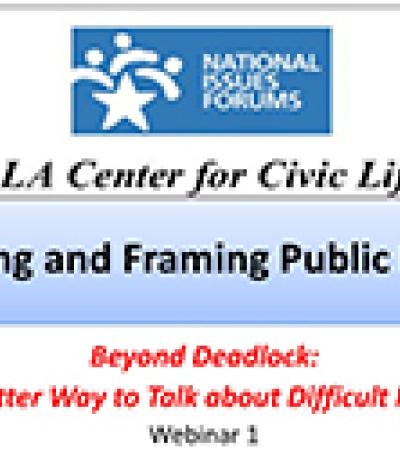The attack on the French satirical newspaper Charlie Hebdo shocked the small town of Darien, Conn., and patrons and librarians alike could not stop talking about it. Wanting to respond to community interest, the library invited two First Amendment lawyers, a local journalist and Rebecca Miller, editor-in-chief of Library Journal, to an open community conversation. The bulk of the evening was guided by audience members, who were encouraged to ask difficult questions.
Advanced Planning
I started planning the event two days after the attack in Paris. As we typically plan events months in advance, this was new territory for us. Leading up to January 20, the bulk of my time was spent politely harassing potential panelists. With less than two weeks notice and a community of over-scheduled individuals, this was absolutely my biggest challenge. We announced the event on a Thursday. I did not have all the panelists confirmed until Saturday, and we went live that Tuesday.
In the end, each panelists ended up being recommended to me by someone. One of our lawyers was a board member, and he connected me with the second lawyer. Maggie, our journalist, was recommended to me by a good friend. And I was e-introduced to Rebecca by our library director. I reached out, unsuccessfully, to local Imams and Islamic scholars to serve on the panel. Though there was interest, the short notice did not work with anyone's schedule.
Once I had the panelists confirmed, I spent every waking moment reading about the attack and First Amendment law. I acted as moderator for the evening and wanted to make sure I could structure the conversation intelligently. The day before the panel, I sent the panelists my prepared discussion questions. I noted that I wanted the conversation to be largely led by audience members, but I would use those to structure the evening.
Marketing
We announced the panel five days before the event. I sent out a dedicated e-blast to our 10,000 subscribers, made the event a featured story on our website, sent out social media plugs, and created posters to display by our welcome desk. I also reached out to our local League of Women Voters group, and they offered to promote the event through their membership. Additionally, our public access television station found out about the event and offered to come film. Typically, I like to have several weeks to craft press releases, promote through local organizations and do as much as I can. Since we only had five days to get the word out, I was petrified I'd be the only one in attendance!
Day-of-event Activity
Set-up the day of the panel consisted of coordinating the four panelists to make sure they had travel secured and were clear about the evening. Beyond that, it was minor things. I printed copies of a summary judgment for a Supreme Court Case we would be referring to and arranged tech set-up for the event. I also finalized my opening statements and discussion questions.
Program Execution
I walked into the evening telling myself that as long as I wasn't the only one in the room, the evening would be a success. We ended up having an audience of 76, far surpassing any goals I had. The most amazing part was how active the evening was. Though most of us were sitting in chairs, you could see the audience members come alive when the panelists were in discussion. Our conversation lasted over 90 minutes. I'm convinced that we could have gone on for an additional three hours, and people would have remained engaged.
Advice
As soon as you have an idea for an event that responds to a current event, let everyone on staff know. I was able to secure my panelists through connections with other people. Having all my colleagues aware of what was going on helped create buzz at our different service desks. Though I am typically one that likes to be over-prepared, being impulsive about this one really paid off!



